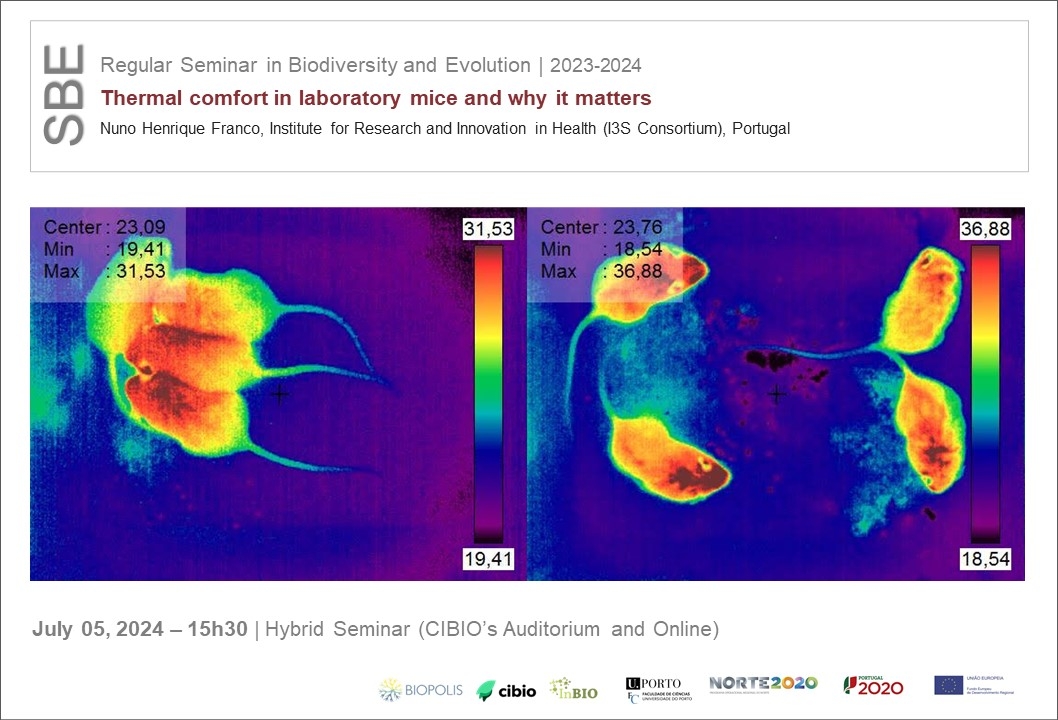Thermal comfort in laboratory mice and why it matters
Event
REGULAR SEMINAR IN BIODIVERSITY AND EVOLUTION
July 05th, 2024
Nuno Henrique Franco, Institute for Research and Innovation in Health (I3S Consortium), Portugal | 15h30 | Hybrid Seminar

REGULAR SEMINAR IN BIODIVERSITY AND EVOLUTION
Small rodent species are endothermic, as adults. While their coping mechanisms for high temperatures are limited, they can adapt to the cold through metabolically generated heat and behavioural strategies. However, since temperatures at which mice are usually kept in captivity can be considerably below their thermal neutral point, mice are likely to be chronically cold and under physiological stress. This not only raises animal welfare issues, but also about the results from studies under these conditions. This talk will address such issues, as well as cover means of studying temperature variations non-invasively, currently used at the i3S.
Nuno Henrique Franco has degrees in both Animal Biology and Science Education, and a PhD in Biomedical Sciences. He is a researcher at the i3S (University of Porto) on the topics of laboratory animal welfare, thermobiology, animal ethics and the 3Rs, and scientific quality. He is vice-president of the Portuguese Society for Laboratory Animal Science (SPCAL) and Past-President of the EU Education & Training Platform for Laboratory Animal Science (ETPLAS). He sits on the i3S Animal Welfare Body and coordinates the Portuguese Network of Animal Welfare Bodies – RedeORBEA.
[Host: Zbyszek Boratyński, Biodiversity of Deserts and Arid Regions - BIODESERTS]
